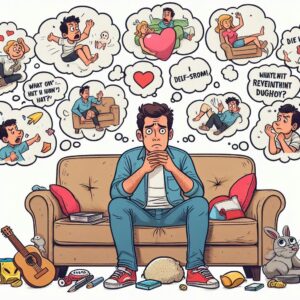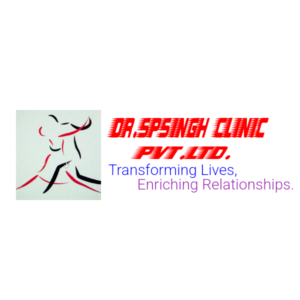Psychological Consequences of Erectile Dysfunction: Breaking the Cycle
Erectile dysfunction (ED) is a common sexual health issue affecting millions of men across the globe. While ED is often viewed as a physical problem, its psychological consequences can be just as debilitating. In this article, we’ll delve into the psychological effects of ED and discuss ways to manage them.
The Psychological Impact of ED
The psychological consequences of erectile dysfunction (ED) are multifaceted and interconnected, impacting various aspects of mental health, relationships, and overall quality of life. Here’s a structured overview:

psychological consequences of erectile dysfunction
-
Self-Esteem and Identity Issues
- Reduced Self-Esteem: ED can lead to feelings of inadequacy, shame, and diminished masculinity, particularly in cultures emphasizing virility.
- Body Image Concerns: Negative self-perception may arise from perceived bodily failure, affecting sexual confidence.
- Sexual Identity Crisis: Men may question their masculinity or sexual orientation, exacerbating emotional distress.
-
Emotional and Mental Health Effects
- Anxiety: Performance anxiety creates a cycle where fear of ED perpetuates the condition. Generalized anxiety about relationships or life stressors may also develop.
- Depression: Linked bidirectionally with ED; depressive symptoms can both cause and result from ED, leading to hopelessness or loss of interest in activities.
- Grief and Loss: Mourning the loss of sexual function or prior self-image, contributing to existential distress.
-
Relationship Strain
- Communication Breakdown: Partners may misinterpret ED as disinterest, leading to conflict or emotional distance.
- Intimacy Issues: Reduced physical intimacy can foster emotional detachment, potentially causing infidelity or separation.
- Mutual Stress: Partners may experience guilt, rejection, or frustration, compounding relational tension.
-
Social and Behavioral Impact
- Social Withdrawal: Avoidance of sexual or social interactions due to embarrassment, leading to isolation.
- Unhealthy Coping Mechanisms: Substance abuse (alcohol, drugs) or compulsive behaviors (pornography) may emerge as self-medication strategies.
-
Treatment-Related Concerns
- Medication Anxiety: Reliance on pharmacological treatments (e.g., PDE5 inhibitors) can cause dependency fears or side-effect worries.
- Stigma Around Help-Seeking: Reluctance to pursue therapy due to societal stigma, delaying effective intervention.
-
Underlying and Long-Term Factors
- Preexisting Conditions: Mental health issues (e.g., depression, trauma) can exacerbate or be worsened by ED.
- Chronic Mental Health Risks: Untreated ED may lead to long-term anxiety, depression, or relationship dysfunction.
- Resilience Factors: Supportive partners, therapy, and healthy coping strategies can mitigate negative outcomes.
- Cultural and Contextual Considerations
- Cultural Attitudes: Societal norms around masculinity influence the severity of psychological impact.
- Age Dynamics: Younger men may face heightened stigma, while older men might attribute ED to aging, affecting coping strategies.
Understanding the Root Causes of ED
To break the cycle of ED and psychological distress, it’s essential to understand the root causes of ED. These can include:
- Physical Factors: Diabetes, high blood pressure, obesity, and sleep disorders can contribute to ED.
- Psychological Factors: Anxiety, depression, stress, and relationship issues can contribute to ED.
- Lifestyle Factors: Smoking, excessive drinking, and lack of exercise can contribute to ED.
Breaking the Cycle: Managing Psychological Consequences
Breaking the cycle of EDD and psychological distress requires a comprehensive approach:
- Seek Professional Help: Consult a sexologist, therapist, or counselor to address underlying psychological issues related to ED.
- Open Communication: Share your feelings and concerns with your partner to strengthen your relationship.
- Stress Management: Engage in stress-reducing activities, such as exercise, meditation, or yoga.
- Self-Care: Prioritize self-care, including getting enough sleep, eating a healthy diet, and engaging in activities you enjoy..
Erectile Dysfunction Treatment Options
Exploring ED treatment options can help alleviate symptoms and improve overall well-being, Some common treatment options include:
- Medication: Oral medications, such as sildenafil (Viagra), can help improve blood flow and achieve erections.
- Therapy: Sex therapy, couples therapy, or individual counseling can help address underlying psychological issues.
- Lifestyle Changes: Making healthy lifestyle changes, such as exercising regularly, eating a balanced diet, and quitting smoking, can help improve ED symptoms.
- Yoga and Breathing Techniques: Practicing yoga and breathing techniques, such as Pranayama and Kapalabhati, can help reduce stress and improve blood flow.
- Ayurvedic Medicines: Certain Ayurvedic medicines, such as Ashwagandha, Shilajit, and Safed Musli, can help improve libido and sexual function. However, it’s essential to consult with an Ayurvedic practitioner before using any herbal remedies.
Intervention Strategies to overcome the Psychological Consequences of Erectile Dysfunction
- Holistic Treatment: Combining medical (e.g., medications, lifestyle changes) and psychological (e.g., CBT, couples therapy) approaches.
- Education and Support: Normalizing ED through education and support groups to reduce stigma and promote help-seeking.
Conclusion
Erectile dysfunction is a complex issue that affects not only physical health but also mental well-being. Psychological Consequences of Erectile Dysfunction may be challenging. By acknowledging the psychological impact of ED and seeking help, men can break the cycle of ED and psychological distress. Remember, ED is treatable, and seeking help is the first step towards recovery.About the Author: Dr. S.P. Singh is a renowned sexologist with 25 years of experience in addressing sexual health concerns and promoting healthy relationships. If you’re struggling with ED or its psychological consequences, consider consulting a sexologist for guidance and support.
About the Author
Dr. S.P. Singh is a renowned sexologist with 25 years of experience in addressing sexual health concerns and promoting healthy relationships. If you’re struggling with ED or its psychological consequences, consider consulting Dr. Singh for guidance and support.

Psychological Consequences of Erectile Dysfunction By Dr SP Singh
Keyword Tag: “erectile dysfunction, psychological consequences, ED treatment, sexologist, mental health”

 Dr. SP Singh Clinic[/caption]
Dr. SP Singh Clinic[/caption]